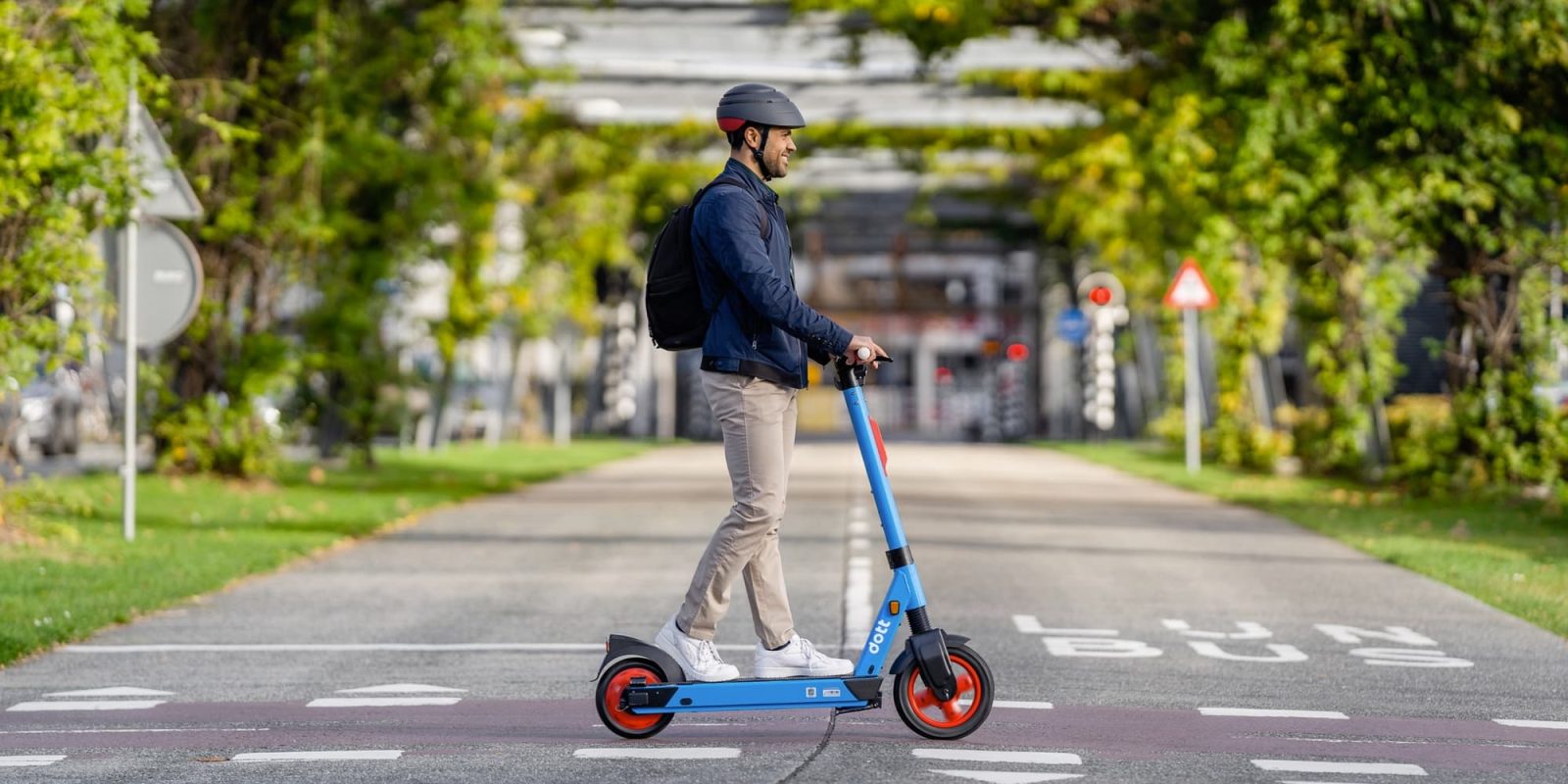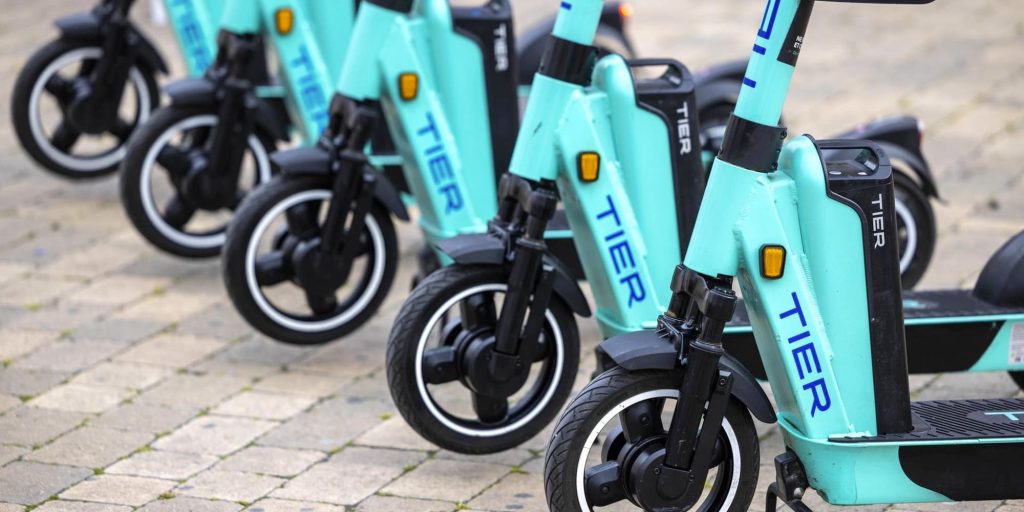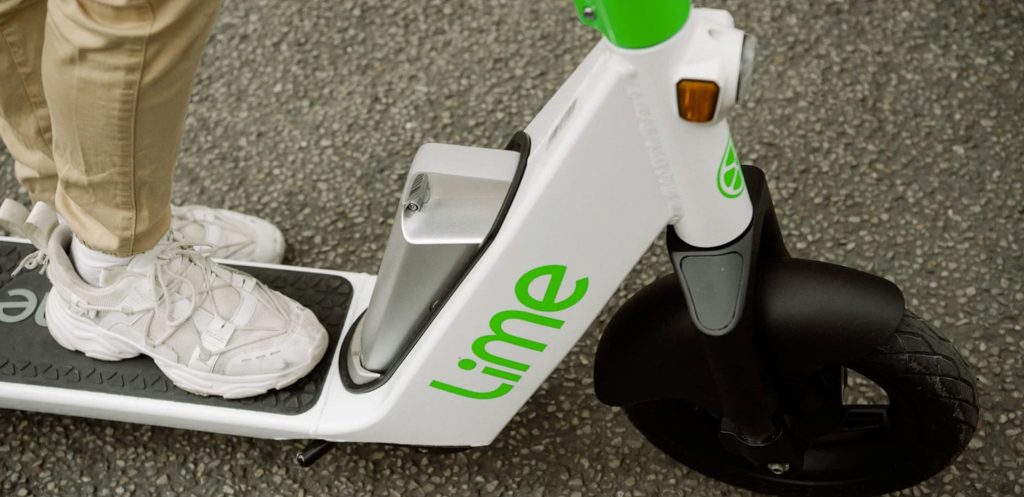
For years, shared electric scooters have dotted the streets and sidewalks of Paris. The scooters were heavily regulated but still welcomed into the city as a new form of alternative transportation. Over time though, the issue of shared e-scooters became more divisive, especially as the number of e-scooters in the city grew. Now it looks like the city is ready to write the final chapter on the shared two-wheelers after a recent vote has led the French capital to ban rental e-scooters.
Electric scooters are light, two-wheeled electric vehicles that typically have speeds of up to 25 km/h (15 mph) in Europe.
Their popularity has soared around the world in the past five years, especially in urban areas where they are used as a form of quick, convenient transportation.
Unlike privately owned electric scooters that are either locked outside or more commonly carried inside riders’ homes or places of work, shared electric scooters are free-floating devices. They are spread around cities where they are rented by the minute using a smartphone application.
Three shared scooter companies, Lime, Tier, and Dott, currently have permits from the city of Paris to operate up to 5,000 scooters each in the city.

Paris Mayor Anne Hidalgo, who has been a champion of reduced car traffic in Paris, led the April 1 referendum to ban shared e-scooters in the city.
Around 89% of voters opted to ban shared e-scooters, though the referendum was plagued by ultra-low voter turnout of around 8%. According to Politico, the shared e-scooter companies had petitioned the city to allow secure electronic voting as it was highly favored by the younger 18-24 demographic that comprise the majority of shared e-scooter riders. Their request was denied.
Hidalgo has pledged to have the shared electric scooters removed by September 1. The ban will not impact privately owned electric scooters, of which there are over 1 million in France.

One shared electric scooter, two competing viewpoints
Depending who you ask, shared electric scooters in Paris were either a menace or a blessing.
Those who opposed the electric scooters pointed to the thousands of scooters littering the sidewalks and pedestrian areas of the city. Riders often flouted traffic rules or parked scooters where they weren’t permitted, and many scooters were tossed into the river Seine by opponents of the light electric vehicles, adding more waste to the waterway.
Scooters left laying on their sides often made it harder for pedestrians to walk on sidewalks and proved to be even greater obstacles to the physically disabled.
Last year Paris saw three deaths and over 400 injuries associated with e-scooters, according to The Guardian.
On the other side of the argument, proponents of shared electric scooters in the city have touted their convenience as an effective and clean alternative form of transportation in Paris. Riders often use the shared e-scooters to replace the need for a car in the city. Compared to personal electric scooters, shared e-scooters prevent the worry of theft – another common issue in large cities like Paris.
Ultimately, the issue largely came down to a generational divide. Younger citizens that made up the vast majority of the shared e-scooter ridership were more likely to oppose the ban, while older city residents that typically made use of other forms of transportation supported banning shared e-scooters.

Paris leading the car-free movement
Even without shared e-scooters, Paris has played a progressive role in the growing movement to reduce car usage in cities.
Paris operates a popular city-run bicycle and e-bike rental program, and last year Paris announced a ban on cars in much of the historic center of the city.
Vehicles banned under the new rules will include most private vehicles used for through traffic. Exceptions will be made for public vehicles, residents who live in the included areas, delivery drivers, and those accessing services such as shopping. Despite the large number of exceptions, the move is still expected to take around 50% of cars off the road in the city center.

lasuna cost – himcolin cheap buy himcolin generic
purchase besivance generic – buy sildamax without a prescription sildamax cost
order probenecid 500mg pills – monograph 600mg uk order tegretol 400mg sale
colospa 135 mg drug – how to buy arcoxia buy pletal generic
brand rumalaya – shallaki cost buy generic amitriptyline 50mg
cambia generic – voltaren generic buy aspirin 75mg online cheap
order pyridostigmine for sale – purchase pyridostigmine sale cost imuran 50mg
lioresal cheap – feldene 20 mg price buy generic feldene for sale
meloxicam 7.5mg oral – order mobic 15mg generic oral toradol 10mg
buy periactin online cheap – tizanidine online buy order tizanidine 2mg without prescription
buy artane without prescription – purchase diclofenac gel sale purchase diclofenac gel sale
oral accutane – buy deltasone 10mg deltasone 5mg for sale
omnicef 300 mg uk – order cefdinir generic clindamycin price
acticin us – retin cheap order tretinoin cream without prescription
prednisone 20mg over the counter – order generic prednisone 20mg buy permethrin without a prescription
order flagyl 400mg pill – buy cenforce 100mg online purchase cenforce pill
betnovate order online – differin online order order monobenzone online
order augmentin pill – buy augmentin 1000mg for sale levothroid pills
buy cleocin pills – buy generic clindamycin buy generic indomethacin
purchase crotamiton for sale – order eurax online order aczone pills
order losartan 25mg for sale – how to buy cephalexin cephalexin 500mg pill
zyban 150 mg for sale – zyban online buy cheap shuddha guggulu
buy provigil 200mg pill – purchase provigil melatonin cheap
order generic prometrium – buy generic clomiphene order clomiphene for sale
order generic xeloda 500 mg – buy ponstel without a prescription order danazol 100mg online cheap
generic norethindrone – order aygestin without prescription cheap yasmin
where can i buy alendronate – order generic pilex provera 10mg pill
dostinex without prescription – order dostinex 0.25mg sale order alesse online cheap
estradiol where to buy – femara generic buy arimidex 1mg pill
バイアグラ гЃ©гЃ“гЃ§иІ·гЃ€г‚‹ – г‚·гѓ«гѓ‡гѓЉгѓ•г‚Јгѓ«гЃЇи–¬е±ЂгЃ§иІ·гЃ€г‚‹пјџ г‚·г‚ўгѓЄг‚№ еЂ¤ж®µ
eriacta journey – forzest awake forzest gain
гѓ—гѓ¬гѓ‰гѓ‹гѓі и–¬е±ЂгЃ§иІ·гЃ€г‚‹ – гѓ—гѓ¬гѓ‰гѓ‹гѓігЃ®иіје…Ґ г‚ўг‚ュテイン йЈІгЃїж–№
crixivan price – purchase fincar generic buy cheap voltaren gel
how to buy modafinil – cefadroxil over the counter oral epivir
valif trace – secnidazole buy online buy generic sinemet
stromectol oral – tegretol canada order generic tegretol 400mg
cheap isotretinoin 10mg – zyvox 600mg ca linezolid 600mg canada
amoxicillin over the counter – order valsartan for sale ipratropium pills
azithromycin 500mg sale – brand azithromycin 250mg order nebivolol 5mg online cheap
order omnacortil – progesterone 200mg brand prometrium generic
brand furosemide 100mg – order nootropil 800 mg online cheap order betamethasone 20gm for sale
cost clavulanate – cost duloxetine 40mg cymbalta without prescription
purchase doxycycline generic – brand glucotrol 5mg glucotrol order online